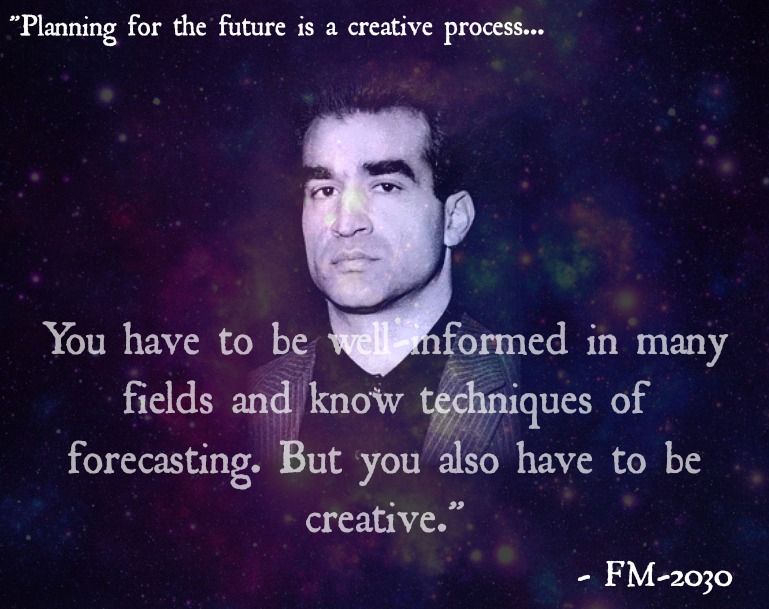
One of the major aspects that can make or break a creative person according to FM-2030 is the environment. In his book “Are You A Transhuman?”, he asks the reader to grade their own surroundings: “Does your home environment stimulate innovation — cross fertilization — initiative?”
We bet you can see where this is going.
The answers are, once more, “Often, Sometimes, or Hardly Ever”, with “Often being the answer choice that gives you the most points — another 2 to tally up to your score if you’re already proving to be more transhumanist that you thought. It might seem obvious, but it’s true — environment can play a major role in the stimulation of creativity. FM says that “It is difficult to be precise about creativity — how much of it is inherited and how much is learned.” If an environment is one that “encourages free unrestricted thinking… encourages people to take initiatives… open and ever-changing”, it is a dynamic environment that can stimulate creativity in an individual.
People who work with telecommunications are susceptible to views that are far different than their own, and the sciences, though structured, force a person to think creatively to find answers. By the same token, people who have a good balance of leisure time and work are also cultivating a greater internal environment to stimulate creativity. And in case you were forgetting the reason creativity is important to FM-2030, perhaps take a look at his quote that sums up the chapter perfectly, below.


 By Singularity University
By Singularity University













